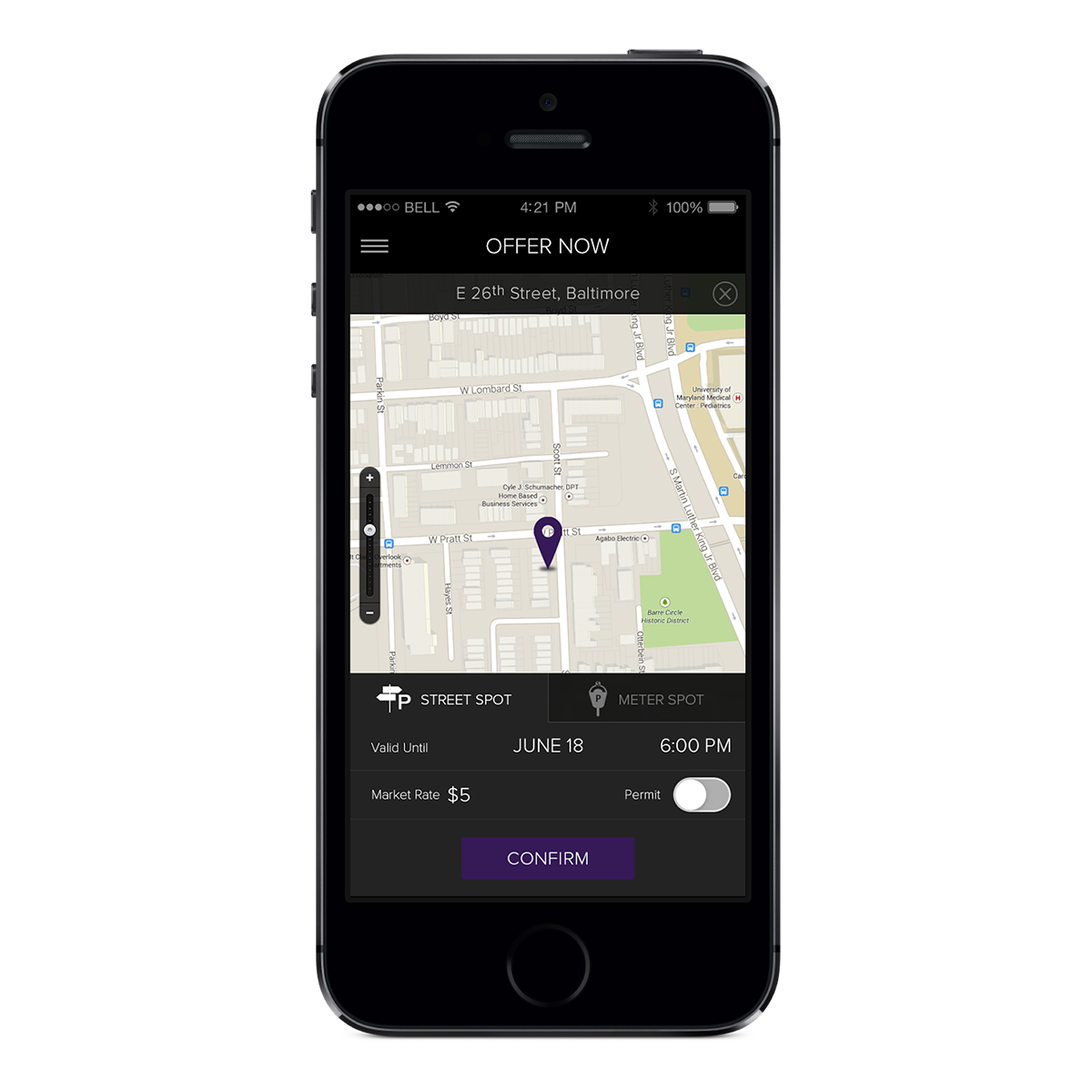Haystack Parking App Could Be Stalled By Proposed City Ordinance

Image via Haystack
Founders of a controversial parking app launched in Boston last month that lets users sell off public spaces to people circling the streets, searching for a place to put their vehicle, claim the city didn’t reach out to them about a public hearing to discuss an ordinance that could essentially dismantle their business operations.
“[We have] not received an invitation to attend the hearing,” said Eric Meyer, CEO and founder of Haystack.
On Wednesday, August 13, the Boston City Council’s Committee on Government Operations will host a discussion to address a new ordinance filed by Councilor Frank Baker during a July 30 meeting. The proposed ordinance, which would prohibit the selling, leasing, or reserving of public ways and city owned streets by any person or business, and carry a $250 fine, indirectly takes aim at Haystack, which rolled out its services in Boston less than a month ago.
Haystack essentially allows people to download an app, and then connect with and alert drivers in the area about a spot opening up. In exchange for leaving a parking space, the person holding the spot gets a set amount of money.
The app raised eyebrows within City Hall recently, and drew extreme criticism from both City Council members and Mayor Marty Walsh. Walsh said in a statement last month that he disapproved of the smartphone-based technology, and that his administration would “take appropriate measures to prohibit any such app.”
“Services like Haystack…artificially inflate the cost of parking and allow individuals to profit from public space. Neither of these activities is in line with the City’s effort to keep parking as open and publicly accessible as possible. These spaces are publicly owned, and cannot be privately sold,” officials said in a statement ahead of Haystack’s launch in July.
If passed, Baker’s ordinance would do exactly what Walsh had hinted toward, and squander Haystack’s chances of trying to “innovate” Boston’s parking problems.
“Any attempt to deny neighbors access to useful information is a step in the wrong direction for a smart parking solution,” Meyer said in response to this week’s public meeting, adding that 5,000 people have joined Haystack in Boston so far.
Meyer told Boston his team is studying the ordinance’s language, even though officials didn’t extend a formal invitation to join the discussion.
Despite the potential threat of Haystack’s operations coming to an end, Meyer said his company is keeping the door ajar for continued conversations, and is even considering tweaking their business model.
“We have offered and remain open to working with the city on a solution to parking while making some concessions to our current model,” said Meyer. “Mayor Walsh is a good guy, and at the end of the day, we’re all just trying to solve the same problem. I remain optimistic that progressive cities and innovative companies can and will work together to address this growing issue.”
Below is the ordinance as proposed by Baker, which is up for discussion:


